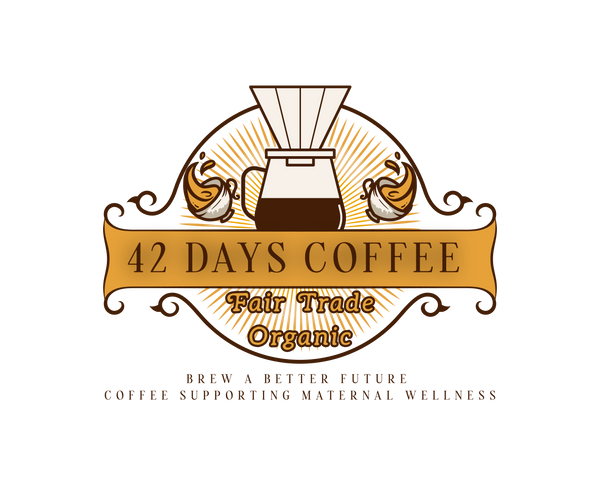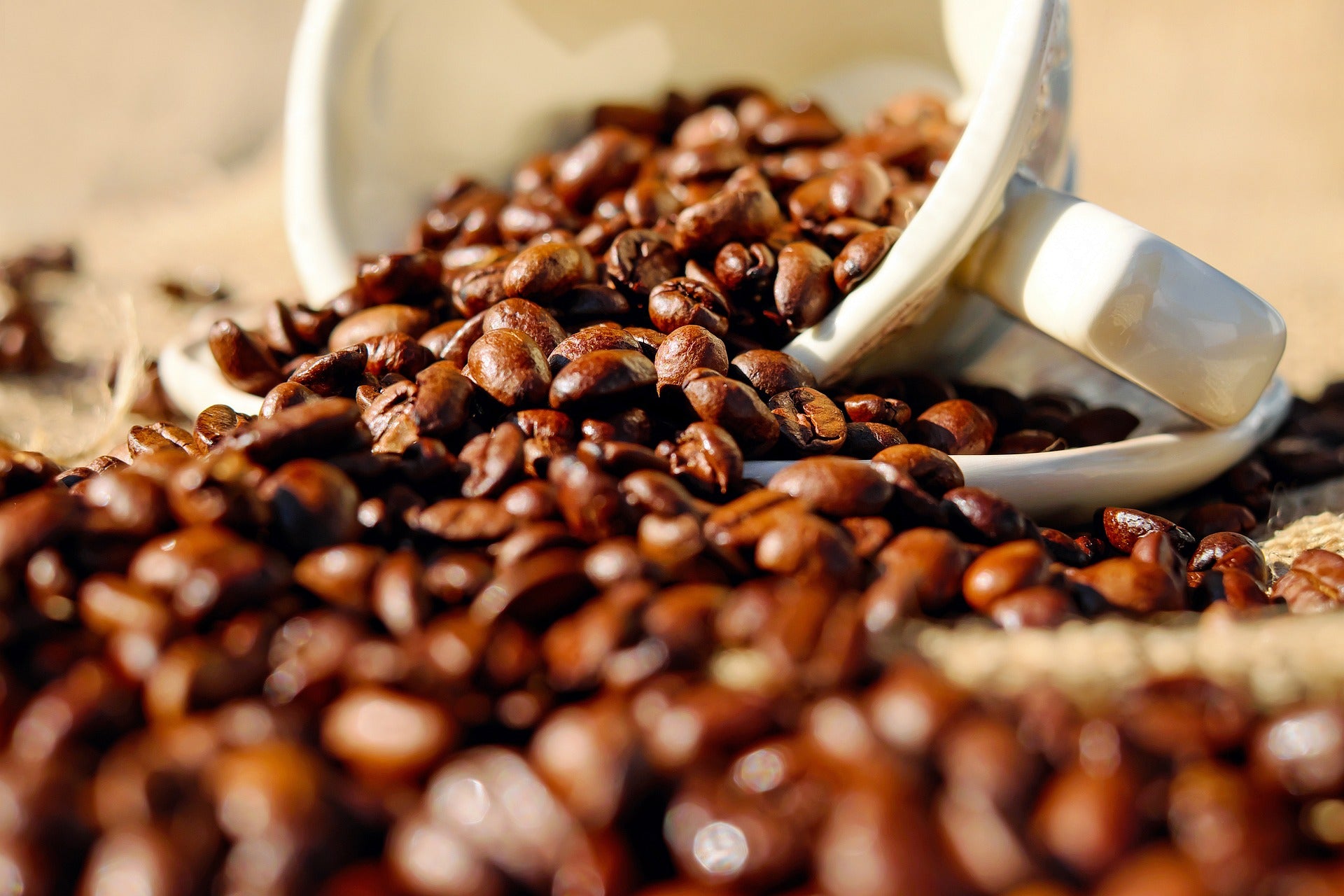42 Days Coffee
Chiapas Mexico Mocha Brew - Medium Roast Gourmet Coffee
Chiapas Mexico Mocha Brew - Medium Roast Gourmet Coffee
Couldn't load pickup availability
Start your day with the distinct flavors of Chiapas Mexico Mocha Brew, a medium roast coffee crafted in the high-altitude region of San Cristobal de las Casas, Chiapas. This exceptional low-acid coffee is a celebration of Mexican coffee heritage, delivering a perfect balance of sweetness, spice, and richness.
Benefits You’ll Love:
- Delightful Flavor Profile: Enjoy a harmonious blend of milk chocolate, caramel-like sweetness, and a hint of light spice for a well-rounded, satisfying cup.
- Mild and Balanced Acidity: Experience a gentle brightness that enhances the coffee’s flavors without overpowering, making it ideal for any coffee lover.
- High-Altitude Quality: Grown in the pristine mountains of Chiapas, these beans thrive in ideal conditions, resulting in exceptional taste and complexity.
- Meticulous Processing for Purity: Fully washed and sun-dried on raised beds, the beans retain their clarity and consistency, ensuring a clean and flavorful brew.
- Versatile and Smooth: Whether enjoyed black or with a splash of milk, this coffee offers a creamy texture and a rich, comforting experience every time.
Savor the artistry and dedication of Chiapas coffee growers with every sip of Chiapas Mexico Mocha Brew. Brew a cup today and immerse yourself in the flavors of Mexico’s coffee heritage!
12 oz.
Shipping Time, 3 - 5 Days
Frequently Asked Questions
Frequently Asked Questions
When will I get my order?
We roast our coffee to order. The benefit to you is that you are guarantee to receive fresh roasted coffee.
Once your order is received, it will be roasted the next business day. From there, we ship it out within 24 hours. Typically delivery time is 3-5 days.
Why is your coffee more expensive than coffee I buy in the grocery store?
At 42 Days Coffee, we prioritize quality, sustainability, and ethical practices, which set us apart from mass-produced grocery store coffee. Here's why our coffee is a premium choice:
- Superior Bean Quality: We source only the highest-grade Arabica beans from trusted, ethical farmers who use sustainable practices. These handpicked beans are carefully grown in optimal conditions, resulting in richer, more nuanced flavors.
- Small-Batch Craftsmanship: Our coffee is roasted in small batches to ensure precision and freshness. Unlike grocery store coffee, which is often mass-produced, we focus on maintaining the integrity of every bean to deliver the best flavor in every cup.
- Ethical and Sustainable Practices: We work directly with farmers and cooperatives, paying fair prices that support their communities and promote environmentally friendly farming. This commitment to ethical sourcing costs more, but ensures better livelihoods and higher-quality coffee.
- Specialized Processing Methods: Our beans undergo meticulous processes like the chemical-free mountain water decaffeination method or natural sun-drying. These methods preserve the beans' intrinsic qualities but require more time and resources.
- Freshness Guarantee: Grocery store coffee often sits on shelves for months, losing its flavor. We roast-to-order, meaning your coffee is as fresh as possible when it reaches you.
Is this coffee Organic and Fair Trade certified?
Yes, all or our coffees are USDA-certifed organic. 42 Days Coffee is committed to ethical sourcing and partners with FairTrade-certified farmers to ensure fair compensation and sustainable practices.
What grind options are available?
We advise whole bean form, which is recommended for optimal freshness. Additionally, you can choose from grind options suitable for filter drip and French press brewing methods.
Do you offer coffee pods?
At 42 Days Coffee, we’re committed to sustainability and reducing waste, so we do not offer single-use plastic coffee pods. Instead, we encourage our customers to use refillable coffee pods. You can find them in any major retail store. This alternative offers you the same great taste while being kinder to the planet.
What is the size of the coffee bag?
"Mama's Strength" is offered in a 12 oz bag.
How does 42 Days Coffee support maternal health?
42 Days Coffee donates 10% of its profits to local and national maternal health organizations. This initiative aims to improve maternal health outcomes, particularly in low-to-moderate-income communities.
Do you offer free shipping?
42 Days Coffee offers free shipping on orders of $50 or more. Shipping costs for orders below this threshold are calculated at checkout.
Can I subscribe to regular deliveries?
Yes, 42 Days Coffee offers a subscription service called the "Bundle of Joy Coffee Club," which provides a 10% discount on regular deliveries.
What makes 42 Days Coffee different from other brands?
Beyond offering high-quality, ethically sourced coffee, 42 Days Coffee is dedicated to social impact. Co-founded by individuals committed to service and community, the company focuses on fair compensation for farmers and improving maternal health outcomes through its profit-sharing initiatives.
Bundle of Joy Coffee Club
Bundle of Joy Coffee Club
Take the hassle out of remembering to buy your coffee. Join our Bundle of Joy Coffee Club and have your orders automatically shipped to you.
In doing so, you save 10% off our regular prices!

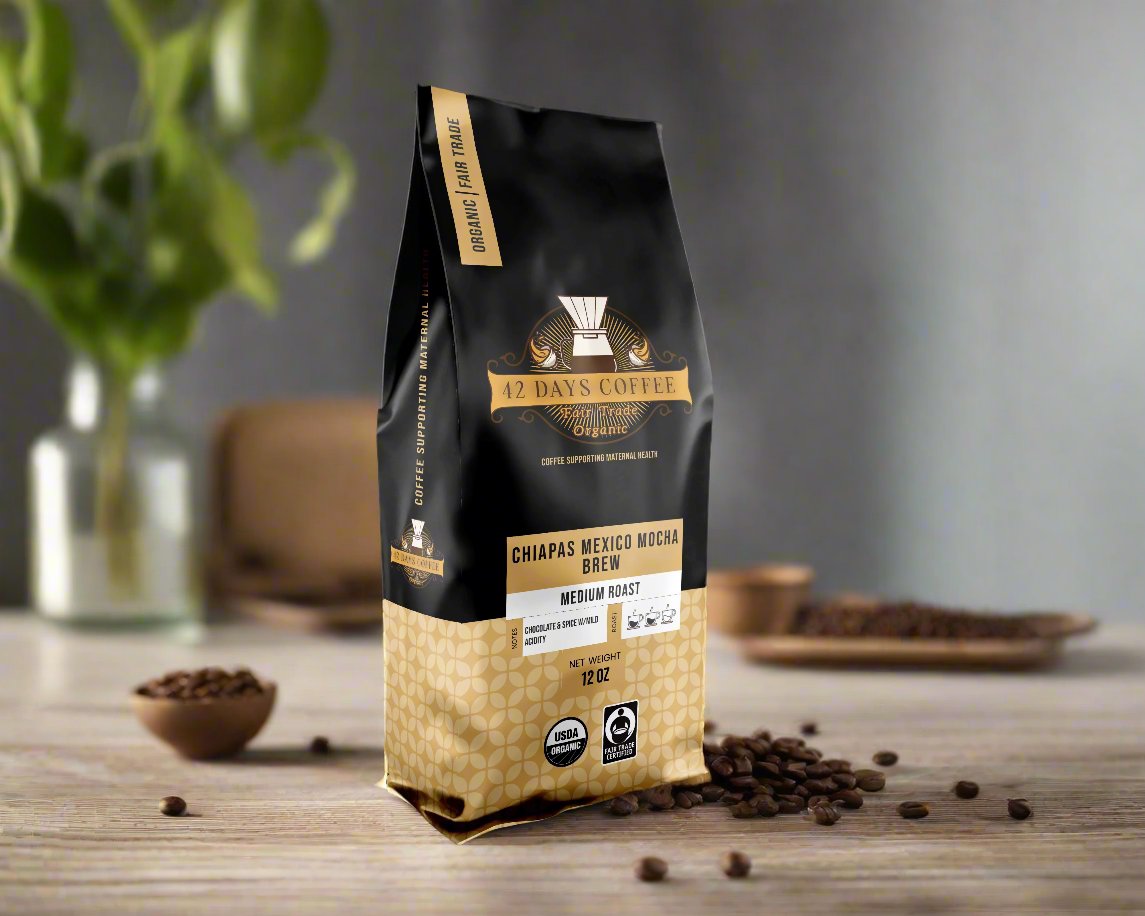

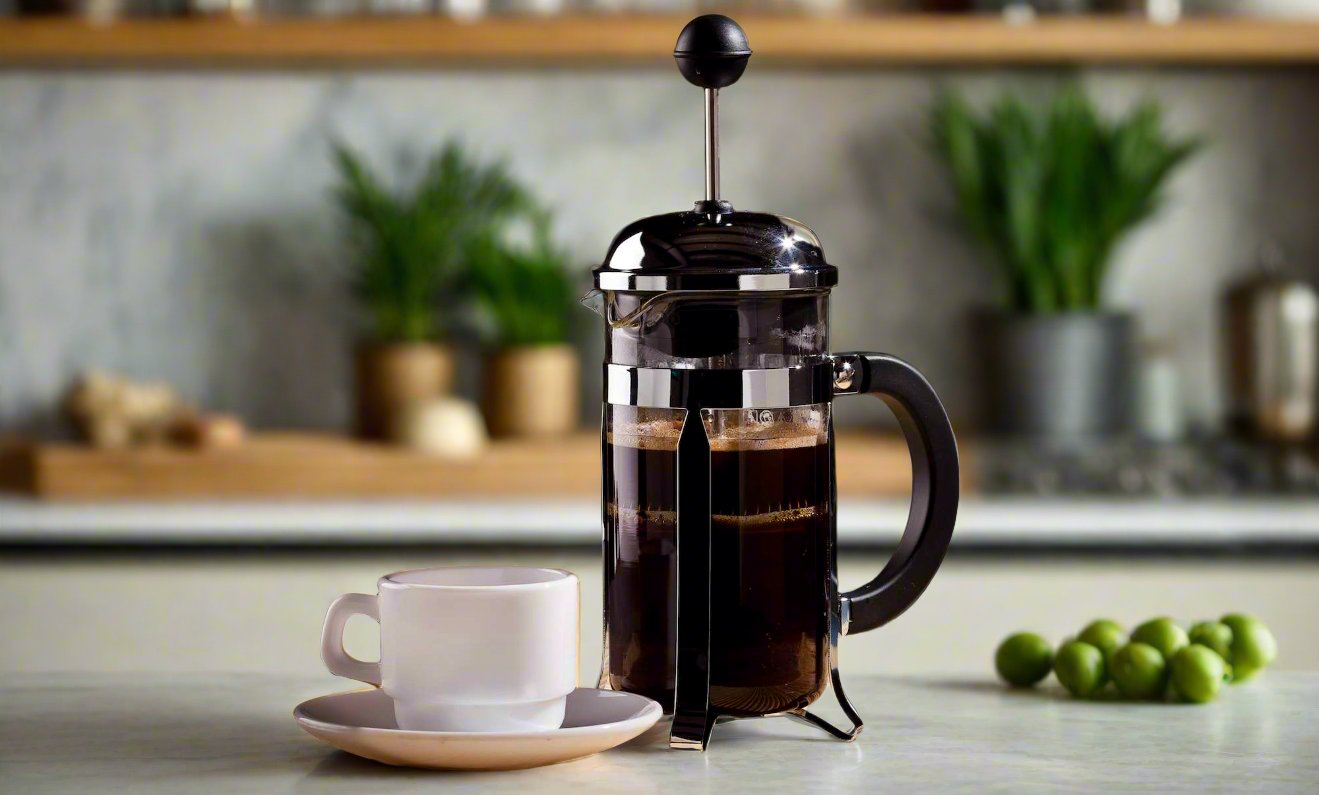
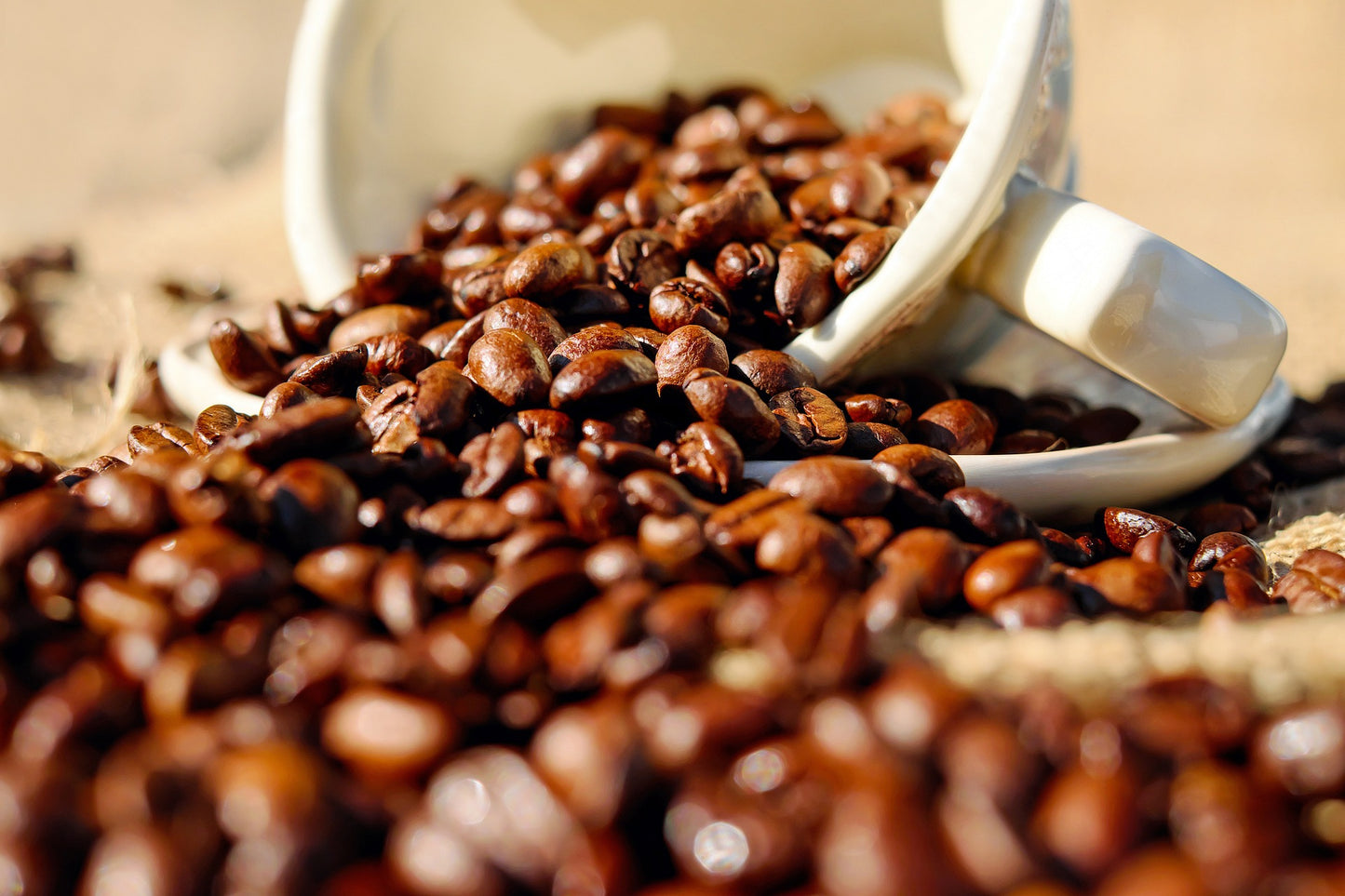

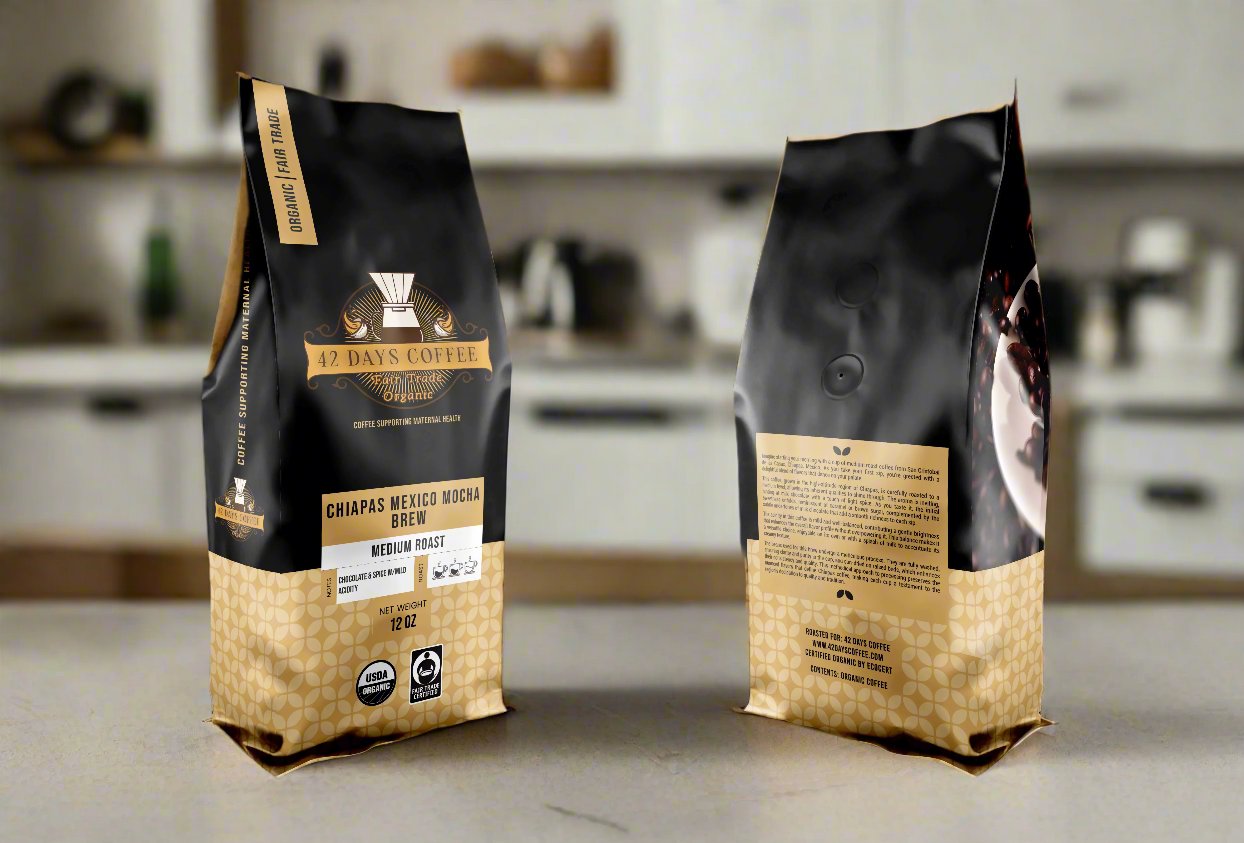
Brewing a Better Future
The United States has the highest maternal mortality rate among high-income countries.
Deaths from suicide, drug overdoses, and other causes related to mental health and substance use issues are the leading cause of pregnancy-related deaths in the U.S., accounting for more than 22% of those deaths.
Source: U.S. Department of Health and Human Services
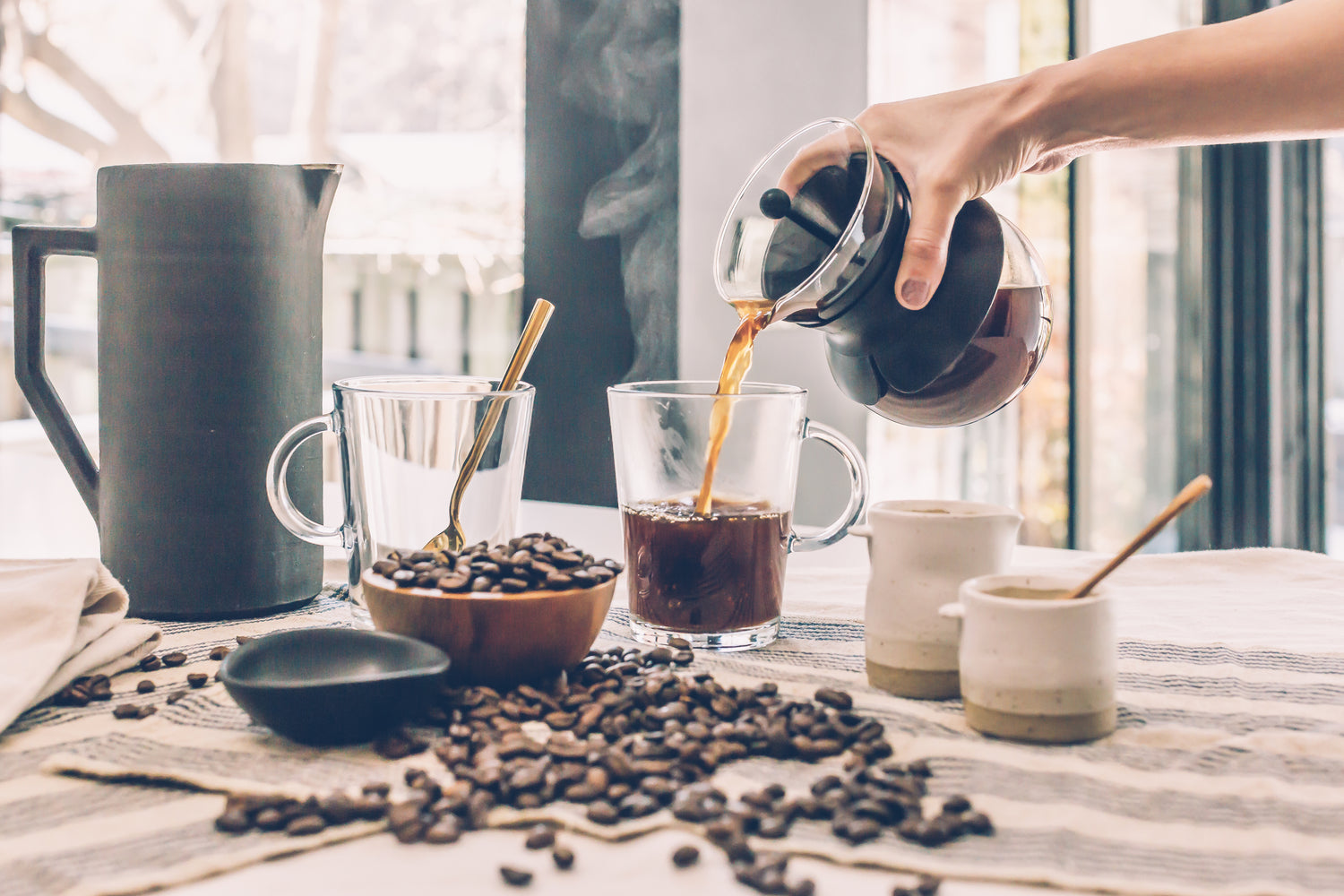
Sourcing
Cafe' Femenino
One of our sourcing partners is Cafe' Femenino.
The Café Femenino coffee program is one-of-a-kind ethical sourcing model committed to ending the cycle of poverty affecting women coffee farmers across the world. Café Femenino provides direct compensation to women farmers, along with the opportunity and resources to enact positive change in their communities and on their own terms.
Specialty vs. Commodity Coffee - Understanding the Difference
In the world of coffee, there are two distinct categories that often spark debate among enthusiasts: specialty and commodity coffee. While both serve the purpose of providing a caffeine fix, the nuances that set them apart can significantly impact the overall coffee experience. Let the world of specialty and commodity coffee to understand the key differences and why it matters.
Specialty Coffee:
- Specialty coffee is a term used to describe coffee that is sourced, roasted, and brewed with exceptional care and expertise.
- This category emphasizes quality over quantity, focusing on unique flavor profiles, ethical sourcing practices, and meticulous brewing methods.
- Examples of specialty coffee include single-origin beans, microlots, and direct trade relationships with farmers.
- Specialty coffee often comes at a higher price point due to the increased labor and attention to detail involved in the entire process.
Commodity Coffee:
- Commodity coffee, on the other hand, is mass-produced coffee that prioritizes efficiency and affordability.
- These beans are often a blend from multiple sources, roasted in large batches, and brewed using standardized methods.
- Commodity coffee tends to have a more generic taste profile, lacking the complexity and nuance found in specialty coffee.
- Price is a key driver in the commodity coffee market, with cost-effective production practices leading to lower retail prices.
Key Differences:
- Quality: Specialty coffee offers a higher quality and more unique flavor experience compared to commodity coffee.
- Transparency: Specialty coffee often provides more transparency regarding the sourcing of beans and the relationships with farmers.
- Sustainability: Specialty coffee is often associated with sustainable practices and ethical sourcing, supporting small-scale farmers and environmentally friendly processes.
- Price: While specialty coffee comes at a premium, the price reflects the care and attention that goes into every step of the production process.
Importance of Knowing the Difference:
- Understanding the distinction between specialty and commodity coffee allows consumers to make more informed choices based on their preferences and values.
- Supporting the specialty coffee industry can help promote sustainable practices, support small-scale farmers, and ensure a higher quality coffee experience.
- By opting for specialty coffee, consumers can explore a wider range of flavors, learn about different regions and varieties of beans, and appreciate the craft of coffee making.
When it comes to coffee, the choice between specialty and commodity can significantly impact your daily cup. By opting for specialty coffee, you not only treat your taste buds to a unique and flavorful experience but also support a more sustainable and ethical coffee industry.
The next time you reach for your morning brew, consider the distinction between specialty and commodity coffee and savor the difference in every sip.
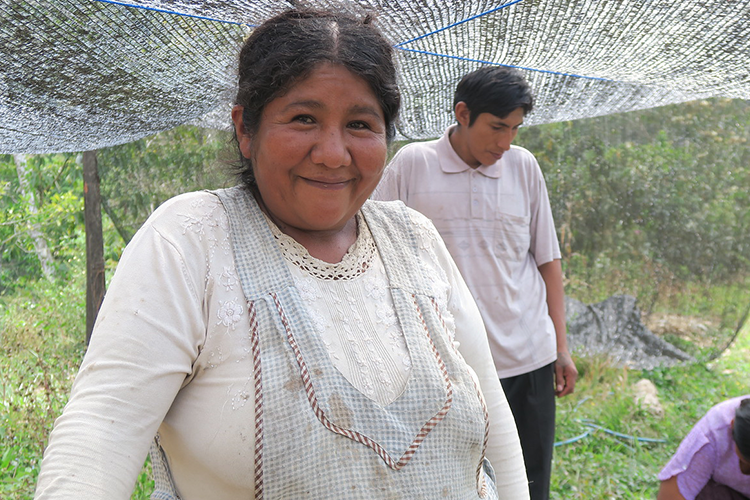
Union Proagro
Since joining the Cafe' Femenino program, the women farmers of Union Proagro have increased their income, their ability to organize and their leadership opportunities-carving out leadership roles at the highest levels within their cooperative.
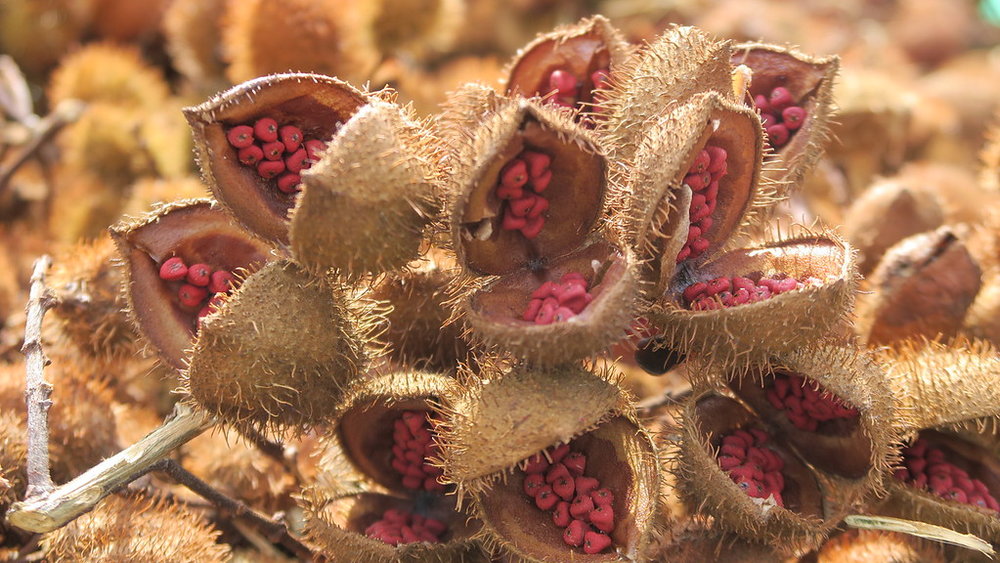
Cafe' Femenino Columbia Program Highlights
Since joining the Cafe' Femenino program, the women farmers of COSURCA have risen above ingrained social stigmas to become a shining example of the courage and power of women standing up together to shape a better future. When they are not harvesting world-class coffee beans, they are running a kitchen upgrade project that improves the health and safety of homes across the community.
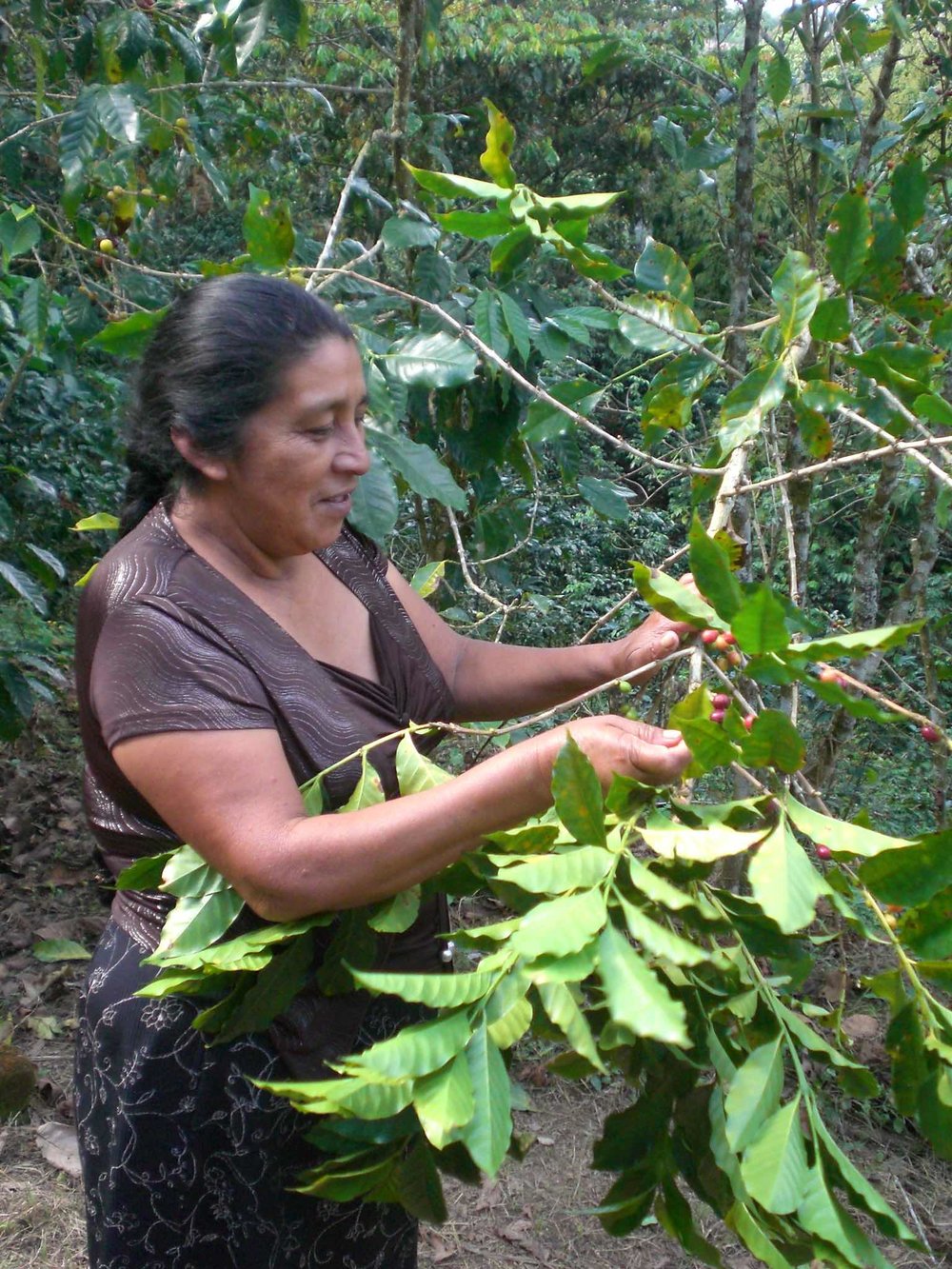
Cafe' Femenino Mexico
Since joining the Cafe' Femenino program, the women farmers of Cesmach have increased their income, their ability to organize and their leadership opportunities-empowering them to support their families during the slow production periods brought on by coffee rust, a destructive plant disease.

Doulas
Doulas vs. Midwives
Doulas and midwives tend to have overlapping duties. But there is a key difference: midwives provide medical care and doula's don't.
- Midwives: Their primary responsibility is to maintain the physical health of a woman and her baby throughout childbirth. Certified nurse-midwives are also trained nurses and have undergone some type of medical training.
- Doulas: Unlike midwives, doulas don't perform any medical task. Their main role is to help laboring women remain comfortable and calm using various methods, including suggesting comfort measure and optimal positions for labor and pushing.
Source: Harvard Medical School
Frequently Asked Questions
How to Brew the Perfect Cup of Coffee
The Equipment
Make sure that your tools - from bean grinders and filters to coffee makers - are thoroughly cleaned after each use.
The Beans
Great coffee starts with great beans. The quality and flavor of your coffee is not only determined by the brewing process, but by the type of coffee you select. Country of origin, variety of bean (arabica, robusta or a blend), type of roast and texture of your grind will play a major role in the finished product.
Freshness
Purchase your coffee as soon as possible after roasting. Fresh-roasted coffee is essential to a quality cup of joe.
The Grind
If you buy whole bean coffee (which is what we recommend), always grind your beans as close to the brew time as possible. A burr or mill grinder is best because the coffee is ground to a consistent size.
Ground coffee beans start to lose flavor in as little as 20 minutes after grinding (imagine how much flavor is lost from those bags of ground coffee sitting on grocery store shelves for weeks before purchase).
The Water:
Use filtered or bottled water for your brew. Tap water tends to contain chlorine which will diminish your flavor.
The ratio of water to coffee should be 1 to 2 tablespoons of ground coffee for every six ounces of water (based on individual preferences). The water temperature should be between 200 degrees fahrenheit for optimal extraction. Colder water will result in flat, under-extracted coffee, while water that is too hot will also cause a loss of quality in the taste of the coffee.
Coffee cools rapidly, depending on the container from which it is being served. Additionally, many coffee drinkers add cream or milk, which will also cool that 200 fahrenheit temperature to the preferred 140 degree temperature at which most coffee drinkers consume their beverages.
Brewing Time:
The amount of time that the water is in contact with the coffee grounds is another important flavor factor.
In a drip system, the contact time should be approximately 5 minutes. If you are making your coffee using a French Press, the contact time should be around 4 minutes. Espresso has an especially brief brew time - the coffee is in contact with the water only for about 30 seconds.
Enjoy your coffee!
Where Did Coffee Originate?
The cradle of mankind, the ancient land of Abyssinia, now called Ethiopia, is the birthplace of coffee.
Legend has it that an Ethiopian goat herder named Kaldi discovered coffee after he noticed that the berries from a certain tree caused his goats to be so energetic that they did not want to sleep at night.
Kaldi reported his findings to the abbot of the local monastery, who made the drink with the berries and found it kept him alert through long hours of evening prayer.
As word moved east and coffee reached the Arabian peninsula, it began the journey which would bring those beans across the globe.
How to Store Coffee
Keep bean airtight and cool
Your beans' greatest enemies are air, moisture, heat and light. To preserve your beans' fresh roasted flavor as long as possible, store them in an opaque, air-tight container at room temperature. Coffee beans can be beautiful, but avoid clear canisters which will allow light to compromise the taste of your coffee.
How are Coffee Bean Roasted
Roasting brings out the aroma and flavor that is locked inside the green coffee beans. Beans are stored green, a state in which they can be kept without loss of quality or taste. A green bean has none of the characteristics of a roasted bean -- it’s
soft and spongy to the bite and smells grassy.
Roasting causes chemical changes to take place as the
beans are rapidly brought to very high temperatures. When they reach the peak of perfection, they are quickly cooled to stop the process.
Roasted beans smell like coffee, and weigh less because the moisture has
been roasted out. They are crunchy to the bite, ready to be ground and brewed.
Once roasted, however, they should be used as quickly as possible before the fresh roast flavor begins to diminish.
It takes years of training to become an expert roaster with the ability to “read” the beans and make decisions with split-second timing. The difference between perfectly roasted coffee and a ruined batch can be a matter of seconds.
Fabulous coffee!!!
This coffee is delicious. I have a sensitive stomach and it’s not hard on my stomach. I look forward to enjoying it in the morning.
